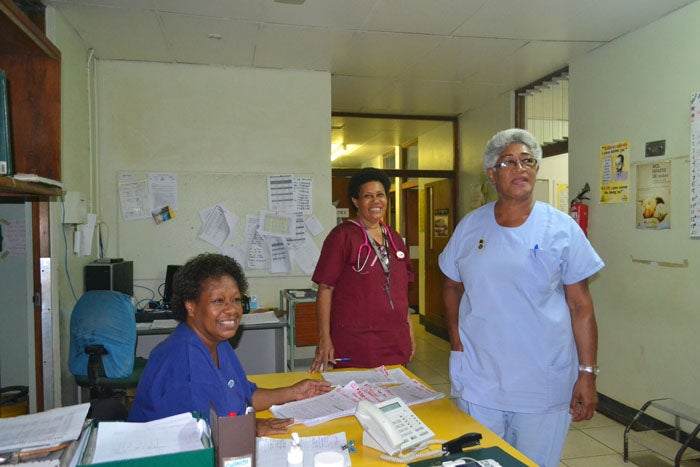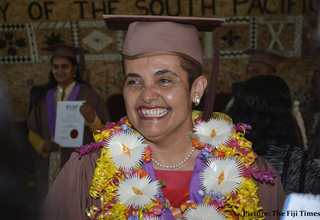UNFPA Pacific, Suva (October 1, 2016) - In observing International Day of Older Persons today, October 1, the United Nations Population Fund, UNFPA, calls for a collective effort to ensure all persons age with dignity and enjoy a lifetime of contribution, integration and well-being.
This year's theme is Take a Stand against Ageism.
While population ageing, as one of the most significant trends of the 21st century is indicative of social, economic and technological advances, it can also be a challenge if we are unprepared.
Discrimination and ageism in the workplace for example are growing concerns in countries where life expectancy and good health encourage older people to keep working particularly in nations where youth unemployment is an issue.
"More efforts are needed to minimize lifelong inequalities and improve the life conditions of older people; we believe that reducing lifelong inequalities and embracing the contributions of older people offer tremendous prospects for development," UNFPA Pacific Director and Representative Bruce Campbell said.
"These efforts start in infancy, with safe deliveries, and continue with good childhood nutrition and excellent schools. They require ensuring that sexual and reproductive health and rights are universal, that gender equality is assured, that social protection and income security extend to all older persons, and that wealth is transferred to younger generations."Population ageing is a transformative force in every country that will test the existing structures of our economies, households and societies. Let us work together to ensure that all people can age with dignity and enjoy a lifetime of contribution, integration and well-being."
People aged 60 and older accounted for 12.3 per cent of global population in 2015, and by 2050, that number will rise to almost 22 per cent. Most of the projected growth of the older population is expected to take place in developing countries. There are an estimated 6 million older persons in Oceania.

Note to Editors:
- Ageing refers to the process where an increasing proportion of a population is aged 60 years and over. In the Pacific, until the 1980s, most Pacific island populations were either ageing slowly or not at all and the proportion of over-60s remained below six per cent; the median age during this period remained between 16 and 20.
- In some countries, population ageing may lead to a proportionately smaller labour force. But whether this occurs, and its impact on the economy, will depend on many uncertain factors, including measures to increase the retirement age, on migration, and, ultimately, on the productivity of both people and machines.
- Ageing populations rely on various sources of financial support - from labour income and assets, to their families and public programmes. This means that ageing countries will need to foster intergenerational dialogue and put in place policies that promote mutual understanding, and empower young and old alike to support one another.
- UNFPA continues to help countries respond to the opportunities and challenges of population ageing by promoting policy dialogue and supporting training, research and data collection disaggregated by age and sex.
- UNFPA is currently reviewing 15 years of progress towards the implementation of the Madrid International Plan of Action on Ageing and supporting the exchange of lessons learned for a healthy ageing world and to capitalize on the second demographic dividend of a more productive and prosperous older population.
- The ageing acceleration of the last two decades however is expected to peak around 2025; the number of older persons of the Pacific is expected to increase at an average annual rate of 3.7 per cent between 2014 and 2050, and to grow in number from around 512,000 to about 2 million.
- The "oldest old" (80 years and over) has been growing at a faster rate than the 60 and over age group. The demographic impact of ageing over the next few decades will be profound in most Pacific island countries (PICs).
- The median age is expected to rise to 27 years by 2030, and about 30 years by 2050; some PICs will reach a median age of 40-42 years by 2050: consider these age groups in relation to our potential working population, to an increasing group of dependents, to ensuring employment opportunities, etc.
*For more information, please call Ariela on +679 9991697 or email: [email protected] or visit the UNFPA Pacific website: http://pacific.unfpa.org



